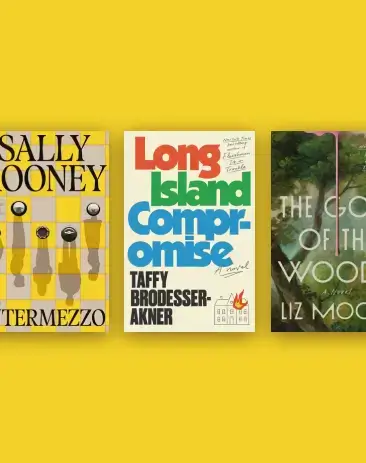The co-op bookstore for avid readers

Marks of Identity
This luxurious translation of a Spanish tour de force, about the return of an exile to his native Barcelona after the Spanish Civil War, should captivate those who prize the elegant lyricism and complexity of Latin American fiction-Publishers Weekly.
Marks of Identity is the first volume of Goytisolo's great trilogy which includes Count Julianand Juan the Landless. It is an affirmation of the ability of the individual to survive the political tyrannies of our times.
Marks of Identity is the first volume of Goytisolo's great trilogy which includes Count Julianand Juan the Landless. It is an affirmation of the ability of the individual to survive the political tyrannies of our times.
Book Details
- Publisher: Dalkey Archive Press
- Publish Date: Jan 1st, 2007
- Pages: 352
- Language: English
- Edition: undefined - undefined
- Dimensions: 8.93in - 6.11in - 1.04in - 1.19lb
- EAN: 9781564784537
- Categories: • Literary• Hispanic & Latino• Cultural Heritage
About the Author
Goytisolo, Juan: - Juan Goytisolo (1931-2017) lived a life of political and cultural exile. A bitter opponent of the Franco regime, his early novels, including Marks of Identity, were banned in Spain. After leaving Spain, he lived mostly in France and Morocco. Many of his novels have been translated into English, including The Young Assassins, Count Julian, Juan the Landless, Makbara, The Marx Family Saga, and Quarantine.
Rabassa, Gregory: - Gregory Rabassawas one of the most renowned translators of both Spanish and Portuguese literature. He translated books by Gabriel García Márquez, Julio Cortázar, José Lezama Lima, and Osman Lins, among many others.
Praise for this book
The reissue of this 1969 translation of a Spanish tour-de-force should captivate those who prize the elegant lyricism and complexity of Latin American fiction. Eschewing political dogma, Goytisolo's ( Forbidden Territory )BIP theme--explored in styles ranging from stream-of-consciousness to those imitative of bureaucratic memoranda--is exile and expatriation. The hero returns from Paris to Goytisolo's native Barcelona after ten years' absence, confronting the aftermath of the Spanish Civil War and his ruptured relationship to Catholicism and machismo culture. Patience is required to navigate Goytisolo's often serpentine sentences, many of which consume several pages. But the prose, presented here in a luxuriant translation, attains hypnotic, incantatory powers. Its density is remarkably evocative: referring to one servant, for example, the narrator notes that she was ``less self-abnegating, however, his Aunt Mercedes would remind them, than that other legendary maid who after an existence of privation . . . left the entire amount of her savings to that scornful grandfather of his who had exploited her during her lifetime.''
This Spanish writer has converted the vague dis-ease with mouldering European youth of his earlier novels, into a sweet-sour, middle-aged perspective on the decay of passion in one life which is a product and soul of Spain. An expatriate in France, Alvaro contemplates his own family history and the ""Twenty-Five Years of Peace"" in the ""grim and sleepy country of thirty-odd million non-uniformed police."" Impelled by a mid-life restlessness to reconstruct and synthesize, Alvaro goes back over the useless gestures of his upper caste family, the abortions of his own childhood dedications, to the years of the Revolution--the murder of his father and the murder of an uncle caught with his gourmet hoard of little frogs. He records on film the savage slaughter of a bull while remembering the massacre of republican peasants. The drama is ""obsessive and remote."" The trial of a fellow student and a demonstration that failed are matters of cafe conversation in France, where the strength of recently arrived young compatriots drains into dialectic and discussion. Because of ""Family, social class, community, land,"" life could not be anything but ""breaking and dispossession."" At the close, in a visit to Spain, Alvaro on the site of the death of the Revolution, intones, ""blessed be my deviation"" from feverish and ancient ties. Goytisolo tends to overstate with fragmented documentary footage at times, but as a solitary expatriate search, this is a somber and corrosive pilgrimage.


